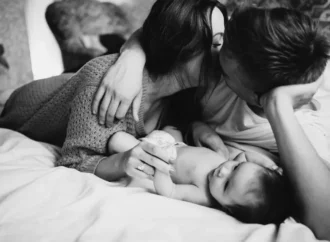Last week presumptive Republican presidential nominee Donald Trump was asked to give a list of books he’s reading. As the Los Angeles Times notes, the fact that he couldn’t name the titles suggests that the question caught him off guard. He did give a little information about the books, however:
“I’m reading the Ed Klein book on Hillary Clinton,” Trump answered, without specifying which one — Klein has written two, “The Truth About Hillary: What She Knew, When She Knew It, and How Far She’ll Go to Become President” and “Unlikeable: The Problem with Hillary.”
Trump then said that he’s reading a book about Richard Nixon, but was unable to recall the title or author, telling Wolff, ‘[W]ell, I’ll get you the exact information on it.’”
Presumptive Democratic nominee Hillary Clinton was a bit quicker on her feet when asked the same question in 2014. Politico shares that her selections were:
“‘The Goldfinch’ by Donna Tartt; ‘Mom & Me & Mom’ by Maya Angelou; and ‘Missing You’ by Harlan Coben.”
Considering the fast-paced campaign schedule these two have, many would call the fact that they’re actually reading something commendable.
But that label of “commendable” might change once we compare their lists to that of Teddy Roosevelt.
In November of 1903, Teddy Roosevelt wrote a letter to Nicholas Murray Butler in which he responded to Butler’s question about the kinds of books a person should read. Roosevelt listed the books he had read during the previous two years of his presidency. Roosevelt was careful to note that he had not always read these books in their entirety, nor was it his first time reading all of them.
In spite of this disclaimer, Roosevelt’s list holds over more than 100 titles.
And those 100-plus titles weren’t light reading either. Below are a handful of the more well-known books or authors Roosevelt mentioned:
- Herodotus
- Thucydides
- Polybius
- Plutarch
- Orestean Trilogy, Aeschylus
- Seven Against Thebes, Sophocles
- Hippolytus, Euripides
- Bacchae, Euripides
- Frogs, Aristophanes
- Politics, Aristotle
- Essays, Macaulay
- The History of the Decline and Fall of the Roman Empire, Gibbon (Roosevelt is careful to note that he only read 3 or 4 volumes.)
- Frederick the Great, Carlyle
- Speeches and Writings, Lincoln
- Essays, Bacon
- Macbeth, Shakespeare
- Twelfth Night, Shakespeare
- Henry the Fourth, Shakespeare
- Henry the Fifth, Shakespeare
- Richard the Second, Shakespeare
- Paradise Lost, Milton
- The Inferno, Dante
- Beowulf, Church
- Quentin Durward, Scott
- Tom Sawyer, Twain
- Pickwick Papers, Dickens
- Nicholas Nickleby, Dickens
- Vanity Fair, Thackery
- Call of the Wild, London
It’s not hard to see that Roosevelt easily squashes both Clinton and Trump in reading material, both in terms of length and mental depth. But before we condemn the two current candidates, perhaps we would do well to realize that they are simply in step with current culture.
As Pew Research reported in 2015, almost one in 3 Americans did not pick up a book – electronic or print – in the previous year.
If Americans aren’t stretching and informing their minds by reading, should we really be surprised when we end up with the types of candidates, laws, and popular culture that we do?
“Every Man has in Politicks as well as Religion, a Right to think and speak and Act for himself. No man either King or Subject, Clergyman or Layman has any Right to dictate to me the Person I shall choose for my Legislator and Ruler. I must judge for myself, but how can I judge, how can any Man judge, unless his Mind has been opened and enlarged by Reading.” – John Adams, 1761
Image Credit: The Library of Congress
















Leave a Comment
Your email address will not be published. Required fields are marked with *